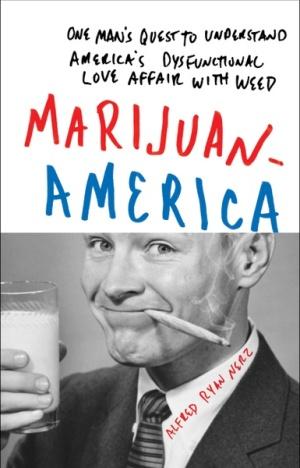Louisiana Drug Lifer Struggles For Freedom... Someday [FEATURE]
special to Drug War Chronicle by investigative journalist Clarence Walker, [email protected]
In 2010, Jody Butler -- Louisiana inmate# 152110 -- was sentenced to life without parole. New Orleans Judge Robin Pittman sentenced the skilled painter and father of an adoring daughter to spend the rest of his days in the infamous Angola state penitentiary, the nation's toughest and largest maximum security prison, located in the Louisiana swamps and surrounded by water.

Because he had more than two previous convictions for drugs, as well as one for robbery, Butler was prosecuted under the state's draconian habitual offender law, which mandates perpetual imprisonment for selected repeat offenders.
"I was serving life without parole for a nickel bag of marijuana and five rocks of cocaine," Butler lamented in a letter he wrote from prison.
In Louisiana, life means life. Butler would stay at Angola until the day he died unless a miracle happened. Last October 3, it appeared it had. On that date, the Louisiana 4th Circuit Court of Appeals overturned his conviction, ruling that New Orleans police officers "illegally searched Butler and seized his drugs without probable cause." Citing the New Orleans Police Department's (NOPD) notorious history of subjecting its citizens to illegal searches, as evidenced by a US Justice Department report, the appellate panel held that NOPD officers violated his constitutional right against unreasonable search and seizure under Fourth Amendment.
"There is no evidence the defendant was involved in any suspicious or illegal activity, prior to the pat-down," according to the judges. "In fact, the police officers specifically testified they had a clear view of the defendant from a short distance and saw no interchange between the defendant and the occupants of the vehicle."
"I was very pleased the 4th Circuit recognized the police violated Mr. Butler's rights and that he would be granted a second chance and not have to waste the rest of his life behind bars," said attorney Ariel Harman, who had represented Butler for the New Orleans Public Defenders Office during his 2011 trial.

But it wasn't to be. In May, responding to an appeal from the DA's office, the Louisiana Supreme Court effectively undid the 4th Circuit's decision. Splitting with the federal court, the state Supreme Court held that the NOPD did indeed have probable cause to stop and search him, upholding the original life-without-parole sentence -- because he had ridden his bicycle on a sidewalk as he rode away from police!
"While NOPD officers may have had no legal cause to frisk Jody Butler after seeing him leaning into an SUV at a drug hotspot on Danneel street, the fact he (Butler) pedaled away on his bicycle on the sidewalk -- a municipal violation -- was enough to pat him down," the court said.
The Supreme Court decision came just days after Butler's mother died while he sat in Angola. While Butler was shell-shocked, his attorney was appalled.
"I was bitterly disappointed when the state Supreme Court sanctioned the unconstitutional actions of the police in Mr. Butler's case," attorney Harman said. "And I am terribly sorry for him, who will likely have to spend the rest of his life behind bars because he possessed a very small amount of marijuana. Nobody should ever have to die in prison because they had some marijuana."
According to court records, it all began with NOPD officers seeing what they could spot as they patrolled a poor, inner city neighborhood. On June 27, 2010, NOPD Sixth District officers spotted Butler, age 40, leaning into an SUV on Daneel Street between Sixth and Seventh. Police said that when he saw them, he looked startled, and sped off on his bicycle onto the sidewalk.

Butler was charged with two counts of drug possession. Defense attorney Harman filed a motion to suppress the drug evidence as the fruit of an illegal search. Judge Robin Pittman denied the defense motion.
Particularly appalling to attorney Harman was the fact that prior to trial she agreed to a plea-bargain to have Butler sentenced without the habitual statute attached, which meant he could have received state jail time or a few years in the slammer. Harman appealed the suppression denial and was waiting to hear back from the appellate court on this matter when it became evident the DA was going to play hardball.
"They pulled their plea offer for Butler right before trial," Harman said. "I am confident we could have reached an agreement but the judge would not grant a continuance. "Since DA Leon Cannizarro took office in New Orleans, his policy has been to charge everybody under the habitual offender act. Despite the fact Cannizarro campaigned on the promise that he would focus on violent crimes and not tie up the courts and jails with drug offenses, he filed multiple bills in nearly every eligible habitual case. A plea bargain for Butler was in everybody's best interest. But the end result was injustice for everybody."
Instead, the case went to trial in January 2011. Based on the evidence derived from the officers' disputed search, he was convicted of drug possession and sentenced to life without parole. He appealed, and the 4th Circuit agreed.
"The best suspicion the officers gave was that Butler looked 'kinda startled' when he saw the officers and rode off," the appeals court noted. "The defendant was arrested without probable cause."

"We may assume the police had no actual subjective intent to arrest defendant for riding his bicycle on the sidewalk in violation of the city ordinance because actually they were looking for high-profile criminals," the court held. "We agree with the state that purely as an objective matter, the officers ultimately did nothing more than what the law entitled them to do by detaining the defendant after observing him commit a misdemeanor offense in their presence and searched him for weapons."
"The idea of a municipal violation -- riding a bicycle on the sidewalk -- as a pretext for the search was never raised until the 4th Circuit threw out the state's original grounds for the search," said Butler's appellate attorney, Chris Aberle. "The state only raised the argument on appeal. Under current law, police can arrest someone for a particular offense and then conduct a search incident to arrest, even if that offense was not what he police were interested in. But in the Butler case, the state Supreme Court expanded that doctrine so that police can conduct a search incident to arrest if the state after the fact decides that the person could have been arrested for that particular offense, even if police at the time were not aware the offense had been committed. With this ruling, the burden has shifted from the state to prove the stop was valid to the defense to prove it wasn't."
Aberle contends the DA's office erred in its appeal to the state Supreme panel by mentioning that Butler violated city ordinance by riding his bicycle on a sidewalk, a fact never mentioned in the original trial court's denial of the motion to suppress evidence nor included in the appeal to the 4th Circuit.
"The traffic stop had nothing to do with my case." Butler said.
"I think this is a big step backwards in terms of our rights to privacy," fumed Harman. "What's next? Is the court going to say it's okay for police to stop someone and strip-search them because they were littering?"
Butler's case is shocking, but not unusual in Louisiana. It is arguably the toughest state in the nation on punishing criminals, even harsher than Texas, California, New Jersey, and New York. The state has nearly 200 habitual offenders whose most recent crimes involved marijuana or crack possession serving life without parole. Of those 200, not one had previously been convicted of a violent crime.
Inmate Cornell Hood can attest to Louisiana's draconian stance toward drug convictions. In 2011, Hood, a resident of Slidell, Louisiana, was convicted of distributing marijuana. With three prior marijuana convictions, the priors triggered automatic life without parole in Angola. His attorney appealed, but before a decision was rendered, the DA offered a deal, agreeing to reduce Hood's sentence -- to 25 years.
The draconian sentencing has its costs. The Louisiana Department of Corrections spends more than $24 million a year just to care for more than 300 long-term inmates who are now too physically infirm to commit a crime.
The state Supreme Court is indifferent to such considerations and eager to uphold habitual offender life sentences. Butler's isn't the only case in which it has effectively overruled the 4th Circuit Court of Appeals.
Timothy Jackson was serving life without parole as a habitual offender in Angola prison when the 4th Circuit reduced his sentence, calling it "excessive and a prime example of an unjust result." But Jackson's joy at realizing he would be paroled turned to ashes when the state Supreme Court effectively overturned the 4th Circuit decision by ruling appellate judges cannot second-guess the habitual offender law except in rare cases.
With a reputation growing worldwide as a state that doles out sentences of perpetual imprisonment for nonviolent offenders, Louisiana elected officials have begun to act, even as the state's judiciary remains callous. Last year, the legislature passed and Gov. Bobby Jindal (R) signed into law House Bill 543, which allows nonviolent offenders serving life to seek parole -- after serving at least 25 years.
But the new law may not help Jody Butler. Whether to make the law retroactive, so it would actually provide some relief to currently imprisoned nonviolent lifers like Butler, is still being decided by the state parole board. If it does, he'll still be serving a 25 year sentence -- for slinging weed. Butler has appealed to the state Supreme Court to reconsider its initial decision in his case, but given that court's performance so far, he probably shouldn't be holding his breath. If that appeal is denied, the case could head for the US Supreme Court In the meantime, Jody Butler remains in Angola, hopeful that someday, freedom will ring, he will get out and get to get back to painting houses, and watch his daughter grow up.
"We have to really start taking a deep look at how we are treating human beings," lamented state Representative Terry Landry (D-New Iberia) told the New Orleans Times-Picayune in May. Referring to Holy Bible, Landry spoke solemnly. "Somewhere in a book it says, 'There but for the grace of God go I.'"
Pennsylvania NAACP Says Legalize Marijuana
Last week, the Pennsylvania NAACP endorsed a pending marijuana legalization bill. And on the 4th of July, the civil rights group stepped up that support, holding a press conference to gain traction for the legislation.

"I am honored that the NAACP has spoken out in favor of my legislation to legalize, regulate and tax marijuana in Pennsylvania," Leach said at the press conference. "As noted in recent reports, the war on drugs is racially-biased, inefficient and ineffective; and this modern day prohibition of a product less harmful than alcohol and tobacco needs to end. We can better use the resources we’re spending to fight this unnecessary war, and we can better spend our time and energy cracking down on substances that are actually harmful."
The state NAACP came on board in the wake of the release of a report recently released by the ACLU that showed that black Americans are more than three times more likely to be arrested on marijuana charges than white Americans. In the Keystone State, the report found, blacks are 5.2 times more likely to be busted for pot than whites.
"As a representative of the NAACP and a retired Deputy Chief of Police with more than 31 years of service with the Southeastern Pennsylvania Transportation Authority (SEPTA) Police Department, it is time Pennsylvania respond to this injustice in a rational and sensible way," said Harvey Crudup, president of the NAACP's Cheltenham Area Branch. "Millions of dollars per year in additional revenues can be generated to build more schools instead of prisons. These tax dollars can also subsidize drug treatment, job training and diversion programs to reduce racial disparities in Pennsylvania’s criminal justice system as well as transportation projects throughout the Commonwealth."
In addition to Leach and Crudup, other speakers at the press conference included Neill Franklin, executive director of Law Enforcement Against Prohibition, and David Scott, chair of the legal redress committee for the Cheltenham Area Branch.
StoptheDrugWar.org and the Chronicle Need Your Support!

StoptheDrugWar.org needs your support more than ever before to continue our work of getting the word out online for the drug policy reform movement, building the movement, and providing this crucial informational tool that reformers around the world use in their work every day. I ask your support at this time with the most generous donation you can afford to enable this newsletter to continue.
For those of you willing to donate $50 or more, I'm excited to announce the authors of three important new works have each agreed to sign at least 25 copies for our newest membership offer!
- Dr. Carl Hart of Columbia University is signing his provocative new work, High Price: A Neuroscientist's Journey of Self-Discovery That Challenges Everything You Know About Drugs and Society.
- Marc Mauer of The Sentencing Project is signing the "graphic novel" he coauthored with artist Sabrina Jones, Race to Incarcerate: A Graphic Retelling.
- New York Times bestselling author Doug Fine is signing copies of the brand new paperback edition of Too High To Fail: Cannabis and the New Green Economic Revolution, which includes a postscript updating the work.
(Click on the links above for more info on the three books. Phil's reviews of High Price and Race to Incarcerate are online here and here, and a review of Too High to Fail is forthcoming.)
To donate, and to order any of these or other items we offer, please use our online donation form at http://stopthedrugwar.org/donate, or scroll down for info on donating by mail. We are asking donations of $50 or more for a signed copy of any one or these books, $95 or more for signed copies of any two, or $135 or more for signed copies of all three. (If more than 25 people order the books by the time you place your order, we will ask the authors if they're willing to sign more. If that can't be worked out, we'll contact you and offer to make different arrangements, whether for a full or partial refund or to send different items.)
Now, $50 is a little more than we've asked for such items in the past, and of course they can be ordered online or purchased in a bookstore for less. Things have changed in the drug reform funding scene, making our organization more dependent on membership to continue our programs -- I hope you'll choose to support us at this time. Note that we continue to offer a range of books, videos, and StoptheDrugWar.org gift items with donations of as little as $7 -- visit our donation form to see the full list.
Also note that donations to StoptheDrugWar.org can be tax-deductible, supporting our educational work, or non-deductible, supporting our lobbying work. (Note that selecting any gift items reduces the amount of your donation that is deductible -- which with a smaller gift amount can be most of it.) Donations can be made by credit card or PayPal at http://stopthedrugwar.org/donate, or sent by mail to P.O. Box 18402, Washington, DC 20036. If you are donating by check, please make it payable to DRCNet Foundation (if tax-deductible) or Drug Reform Coordination Network (if not deductible). If you wish to donate stock, the information to give your brokerage is Ameritrade, (800) 669-3900), DTC#0188, and account number 781926492 for tax-deductible gifts or 864663500 for non-deductible gifts -- please make sure to contact us if donating in this way.
Thank you for standing with us to stop the drug war's cruelties and meet the opportunity this time offers to make a brighter future. As recent events show, time and the truth are on our side!
Sincerely,

David Borden, Executive Director
StoptheDrugWar.org
Washington, DC
http://stopthedrugwar.org
Chronicle Book Review: Race to Incarcerate: A Graphic Retelling
Race to Incarcerate: A Graphic Retelling by Sabrina Jones and Marc Mauer (2013, The New Press, 111 pp., $17.95 PB)
Marc Mauer, the executive director of the The Sentencing Project, a Washington, DC-based nonprofit devoted to reforming harsh sentencing practices and the way we think about crime and justice, first published the groundbreaking Race to Incarcerate back in 1999. With clinical precision, Mauer showed how -- and why -- our prison population began skyrocketing in the 1970s, driven less by crime than the politics of "tough on crime" and "tough on drugs," and how the issue of crime was inextricably interwoven with issues of race and class.

As Michelle Alexander, author of The New Jim Crow notes in her forward to this edition, she used Race to Incarcerate as an organizing tool, sending copies off to people who could wade through and benefit from its number-crunching and policy analysis. But she generally didn't send it to young or uneducated people, relying instead on videos, magazine articles and the like. A Graphic Retelling is designed to be accessible to people who aren't policy analysts or academics, and it succeeds impressively.
With its appropriate dark illustration by graphic artist Sabrina Jones, the graphic version of the book tells the complex and convoluted tale of America's incarceration obsession in a way that is easy to grasp, yet as powerful as paragraphs of dense text -- if not more so. With the help of Jones, Mauer's astute and pointed analysis leaps off the page in easily digestible and visually pleasing -- if sometimes disturbing -- imagery. How better to show (rather than tell) America's position as the world's leading incarcerator than a graphic of men crammed into tiny boxes piled atop more men crammed into tiny boxes in a pile that stretches to the sky?
Mauer and Jones take the reader/viewer on a tour of American punishment going back to the colonial era, when imprisonment was rarely used -- physical punishments, such as whippings or the stocks were instead the norm -- and the first "reform," the "Pennsylvania model," where penitent prisoners resided in a penitentiary, locked in their cells alone all day with their work and their Bibles, to reflect on the error of their ways. Advanced by the Quakers and seen as a humane alternative to physical punishments, the "Pennsylvania model" laid the groundwork for the prison system that has metastasized into the present-day American gulag.
But the "Pennsylvania model" had its critics early on, including Charles Dickens, who called the enforced, prolonged solitary confinement "worse than any torture of the body." Still, a century and a half after Dickens, the penitentiaries endure, and so does the massive use of solitary confinement, even though human rights groups qualify it as a human right abuse.
Race to Incarcerate really takes off, though, in the 1970s, when the prison population, which had been relatively stable for decades, also began taking off. Frightened by the tumult and turmoil of the 1960s, American voters elected "tough on crime" Richard Nixon as president, and the race to incarcerate was on, only to accelerate under Ronald Reagan, and continue full speed ahead under Democratic and Republican administrations alike until the early years of this century.
Along the way, we revisit the draconian Rockefeller drug laws of the 1970s, the model for mandatory minimum sentencing that was to sweep Washington and state capitals in the years to come, as well as successive -- and successively more harsh -- federal drug and sentencing laws that have stuffed our prisons full of nonviolent, low-level drug offenders.
Many of those nonviolent, low-level drug offenders we pay billions to keep behind bars are poor people of color. Too many. A disproportionate number, given the percentage of black people in the population and their rates of drug use (about the same as whites). Mauer shines here with his analysis of the race and -- gasp! -- class dimension of mass incarceration, and the shameful failure of the American political system to respond to social problems with anything other than a prison cell, especially if you happen to be the scary black male "other."
America's imprisonment binge has also inspired a contemporary reform movement, of which Mauer is both member and narrator. And, as he notes in a preface to the new edition, that movement is gaining ground. The overall prison population is now stabilized, if not actually declining, thanks to sentencing reforms in the states and, to a much more limited degree, at the federal level. (The states have had to deal with their budget crises by making real policy choices, such as reducing imprisonment levels; the federal government, on the other hand, simply prints more money and goes on its merry way.)
But even with the progress that has been made, America remains the world's unchallenged leader in imprisoning its own people. Eliminating drug prohibition would cut our prison population by about a fifth, but we would still be the world's leading jailer even then. It's not that Americans are more criminal than anybody else; it's that we lack the will or the imagination to come up with more humane solutions to our social problems -- and some politician can always count on gaining support by playing to fear and the "lock 'em up" vote.
The tide may, finally, be beginning to turn, but there are many, many battles left to fight. Race to Incarcerate: A Graphic Retelling is a perfect tool for educating the young and the non-wonkish about the issues involved and the forces involved in that All-American urge to punish. This book deserves a place in the high school class room, among youth groups, and among those hoping to educate and mobilize for positive change on crime, race, class, and social justice issues. It is a powerful tool for good.
Chronicle Book Review: Cannabis Nation and Marijuanamerica
Cannabis Nation: Control and Consumption in Britain, 1928-2008, by James Mills (2013, Oxford University Press, 292 pp., $65.00 HB)
Marijuanamerica: One Man's Quest to Understand America's Dysfunctional Love Affair with Weed, by Alfred Ryan Nerz (2013, Abrams Image, 271 pp., $19.95 HB)

National polls here are consistently showing that support for marijuana legalization has crossed the threshold into majority territory, weed-smoking is now the stuff of casual comment instead of horrified gasps, and, in what could the clearest sign of marijuana's growing acceptance, profit-minded entrepreneurs are beginning to line up for a chance to grab the grass ring. It's almost, but not quite, as if we have already won, and all that's left is clearing the last holdouts of pot prohibition.
On the other side of the Atlantic, things seem to be heading in the opposite direction. Heeding the advice of its drug experts (an increasingly rare thing there), Britain in effect decriminalized marijuana in 2004, but backtracked four years later, pushing it a notch back up its dangerous drug schedules. The British press is full of reports of raids on "cannabis factories," or what we would call indoor gardens, and replete with the sort of Reefer Madness nonsense that would make Harry Anslinger blush.
Fertilizer becomes "poison cannabis chemicals," the deadly "skunk" turns kids into homicidal "feral youths," and anti-cannabis crusade victims regularly appear before the courts to go through the self-abasing ritual of explaining that they should have mercy because their cannabis addiction ruined their lives. They know what they're supposed to say. When it comes to marijuana, in feels like 1963 in Britain instead of 2013.
Cannabis Nation and Marijuanamerica certainly reflect those differences in style as well as substance, even if they don't explain them. (And why should they? Neither makes a pretense at being a comparative study.) The former is a stately academic review of British pot policy in the last century, relying heavily on governmental files, diplomatic archives, commission reports, and police arrest records, while the latter is an impressionistic journey through American weed's Wild West, relying heavily on interviews, first-person reporting, some participatory journalism, and copious amounts of the chronic itself.
Despite their differences in tone and subject matter, both are worthwhile contributions to the rapidly increasing literature around marijuana and marijuana law reform. Cannabis Nation is authored by respected British drug historian James Mills and is the sequel to his 2003 Cannabis Britannica, which traced Britain's involvement with the herb from 1800 into the beginning of the 20th Century. In this second volume, Mills not only tracks the emergence of marijuana consumption in the metropole, but also the impact of Britain's legacy as a colonial power on its encounter with the weed.
There are parallels with the American experience, but also differences. In both countries, marijuana was the province of outsiders. Here, it was Mexicans and black jazz musicians who were the original consumers; in Britain, as Mills shows, it was South Asian, Caribbean, and Arab colonial subjects who brought pot-smoking to Albion. And before the aftermath of World War II, when Commonwealth citizens flooded into Britain, marijuana use was rare indeed. Mills shows the pre-war pot arrests were almost nonexistent, counted in the dozens annually, and almost entirely of merchant seamen of Arab or Indian descent enjoying their shore leave.

In fact, the British marijuana reform movement gets relatively short shrift, as Mills concentrates on the doings of the politicians, ministries and constabularies. It is worth noting that, thanks to the drug diplomacy in the era of the League of Nations, Britain not only got a broad understanding of the plant's widespread use (British India lobbied hard for a relaxed approach, while British Egypt lobbied equally hard for a tough prohibition), but British police were mobilized to police marijuana early -- before there was any consumption to speak of.
One of Mills' key points is that nearly a century later, the police continue to play the key role in British pot policy. In the wake of the 1960s' pot controversies, politicians adopted the "British compromise," maintaining existing marijuana prohibition, but leaving the level and intensity of enforcement up to the police. As he shows, with politicians treating marijuana as a political football, that's still the case. Such a stratagem may work for the police, less so for marijuana growers and consumers, but it raises the question of whether law enforcers should be de facto policy-makers.
Overall, Cannabis Nation is a key contribution to the history of British pot politics, an academic treatise that is also quite readable and provocative, and one that disentangles the political and social forces behind marijuana use and reform in Britain. Given its $65 cover price, though, you're probably going to want to read it at your university library, or else hope that an affordable paperback edition appears.
Alfred Nerz inhabits a different world from James Mills. His Marijuanamerica is only among the most recent of dozens of popular accounts of the reefer revolution sweeping the US, and he traverses lots of familiar territory: He attends Oaksterdam University, interviews Richard Lee and Harborside Health Center's Steve DeAngelo, then heads for Humboldt County to smell the revolution for himself.
Amidst his travels, Nerz takes detours to address the issues around marijuana use -- is it helpful or harmful? What are its physical effects? Is it addictive? And should I quit smoking so much? -- and does so with verve, wit, and an engaging way with the science.
But what makes Marijuanamerica stand out in an increasingly crowded field is Nerz's own story of getting involved with California marijuana "outlaws." The book opens with him cruising eastbound down Interstate 80 just outside of Omaha with 100 pounds of weed in the trunk and a Nebraska State Patrol trooper on his tail. For someone carrying a personal pot stash down the nation's interstates, such an encounter is frightening; for someone carrying several felonies worth, it is absolutely terrifying. You'll have to buy the book to discover how that experience turned out.
In Northern California, a mightily stoned Nerz managed to hook up with a marijuana grower and distributor nicknamed Buddha Cheese, spend time at some of his grow sites scattered throughout the Emerald Triangle and the Sierra, and get a very close-up look at outlaw marijuana production without even the pretense of it being destined for the medical marijuana market. It's a sketchy, criminal scene, with lots of riff-raff and shady characters, just as one would expect in an underground criminal economy. It's a load of Buddha Cheese's product Nerz is driving to the East Coast, hoping to pocket $200 a pound for his troubles, a nifty $20,000 for toting his hundred-pound load. (Given the pot glut and dropping prices on the West Coast, getting the weed to the other coast can be the difference between $2,000 a pound at home and $6,000 a pound in New York or Philadelphia.)
Nerz's sojourn with the outlaws is eye-opening and somewhat disturbing, but also refreshing. There have been an awful lot of words written about medical marijuana, with its noble purveyors working to alleviate human suffering. And most of them are true. But California also produces one hell of a lot more pot than even its wide-open medical marijuana market can absorb, and so do growers in Colorado, Oregon, Washington, and other medical marijuana states. It's the All-American combination of enthusiasm for a wonderful plant that gets you nicely high, the desire to stick it to "the man," and the impulse to get rich quick. That's been part of America's pot culture for the past half-century at least, and it's nice to get past the sanctimony of medical marijuana and back to the outlaws.
You will want to read Cannabis Nation if you have a serious interest in the history, politics, and diplomacy of marijuana in England, and you'll have fun doing so. You don't need to be nearly as serious with Marijuanamerica, and you'll most likely have more fun, especially hanging out with those shady pot outlaws and Nerz himself. But both would make nice additions to your drug literature bookshelf.
Medical Marijuana Update
A federal medical marijuana banking bill was introduced, an Oregon bill that would allow and regulate dispensaries heads to the governor's desk, Berkeley and Oakland fight the feds, and more. Let's get to it:

On Wednesday, Rep. Ed Perlmutter (D-CO) introduced the Marijuana Business Access to Banking Act of 2013. The bill addresses the growing banking crisis for regulated, state-legal marijuana businesses which are frequently unable to access even the most basic of banking services such as business checking accounts or merchant services. It would block federal regulators from punishing or penalizing a bank or its employees because it provides services marijuana-related businesses, exempt depository institutions from persecution and forfeiture simply for providing services to a marijuana-related business, and exempt marijuana-related business accounts from disclosure reporting requirements intended to identify individuals engaging in federally illegal activities. The bill has 17 cosponsors.
California
Last Tuesday, the El Centro city council voted to extend his moratorium on new dispensary applications for another year. It cited concerns over federal preemption.
Last Wednesday, the city of Berkeley filed a lawsuit against the Department of Justice in an effort to block federal prosecutors from seizing the property that houses the Berkeley Patients Group.
Also last Wednesday, the city of Oakland won a ruling halting the Justice Department's effort to shut down Harborside Health Center. The ruling blocks the feds from seizing a building housing the country's largest dispensary while Oakland appeals the dismissal of its own suit challenging a prosecutor’s bid to close the store. US Magistrate Judge Maria-Elena James said the government won’t be harmed if its bid to seize the building where Harborside operates is put on hold pending Oakland’s appeal.
Also last Wednesday, the Rancho Santa Margarita planning commission approved a dispensary ordinance that would ban dispensaries in the city. The ordinance now goes before the city council, but the date for the hearing on it hasn't been set yet.
Also last Wednesday, the Palm Springs city council approved putting dispensary taxation to a popular vote. In a unanimous vote, the council approved the measure, which would allow it to tax permitted dispensaries at a rate of up to 15% of their sales. The council also voted to ban delivery services not linked to permitted dispensaries.
Florida
On Wednesday, the secretary of state gave final approval for signature-gathering to get underway on a proposed medical marijuana initiative. The initiative sponsors, People United for Medical Marijuana, now has until February 1 to gather some 700,000 valid voter signatures. The campaign is estimated to cost about $3 million, and the group has raised $200,000 so far.
Oregon
Last Wednesday, Southern Oregon NORML was evicted from its Medford offices. The group's director, Lori Duckworth, and her husband had been arrested in May for operating a dispensary, and her landlord said they must vacate for violating federal drug laws and because they failed to pay the rent. Duckworth said they couldn't pay the rent because police seized all their assets.
On Saturday, the legislature gave final approval to a dispensary bill and the measure now awaits the signature of Gov. John Kitzhaber (D). House Bill 3460 will set up a registration system for dispensaries, authorizing the transfer of marijuana and seedlings to patients. The state currently allows patients with certain debilitating medical conditions to grow their own marijuana or designate someone else to do it, but there isn't a place to legally purchase the medicine.
[For extensive information about the medical marijuana debate, presented in a neutral format, visit MedicalMarijuana.ProCon.org.]
Marijuana Decriminalization Bill Filed in DC
District of Columbia Councilmember Tommy Wells (D-Ward 6) filed a marijuana decriminalization bill for the nation's capital Wednesday. Wells is chairman of the council's Committee on the Judiciary and Public Safety.

Pressure is mounting for marijuana law reform in the District. If the council doesn't act, DC-based activists are contemplating an initiative next year. Reform supporters have been emboldened by a recent Public Policy Polling survey that found 75% of District voters support decriminalization and more than 60% would support a tax, regulate, and legalize initiative similar to those that passed in Colorado and Washington last year. That same poll found a solid majority (54%) in favor of decriminalizing the possession of all drugs.
The release last month of an American Civil Liberties Union report on racial disparities in marijuana arrests has only upped the pressure. That report found that DC residents are arrested for marijuana possession at a higher rate than the residents of any state and that black DC residents are arrested at a rate far higher than white ones.
"The introduction of this legislation by Councilmember Tommy Wells is a positive step toward putting an end to marijuana possession arrests that cause irreversible harm to people's lives, disproportionately impact communities of color, and waste public resources," said Grant Smith, policy manager with the Drug Policy Alliance Office of National Affairs. "While this legislation is an important step in the right direction, Councilmembers should consider following in the footsteps of Colorado and Washington by legally regulating marijuana," said Smith.
"The District's current policy of arresting and prosecuting thousands of adults for marijuana possession each year is doing far more harm than good," said Morgan Fox, communications manager for the DC-based Marijuana Policy Project. "Nobody should face life-altering criminal penalties simply for possessing a substance that is objectively less harmful than alcohol, and law enforcement officials' time and attention would be better spent addressing serious crimes. It is time to adopt a more sensible marijuana policy in our nation's capital, and that is what Councilman Wells has proposed," Fox said.
"As Councilmembers look to end marijuana possession arrests, they should also consider the broad human and fiscal toll that decades of failed drug prohibition has wrought on District residents," said Smith. "Ultimately, drug use is most effectively addressed as a health issue instead of as a criminal justice issue -- and this means that possession of any drug in DC should not be criminalized," said Smith.
Oklahoma Welfare Drug Screening Finds Few Dopers
Last year, the Oklahoma legislature passed and Gov. Mary Fallin (R) signed into law a bill mandating drug screening for welfare applicants. The bill was designed to save the state money by weeding out drug users seeking Temporary Assistance for Needy Families (TANF) funds.

Some 340 people were deemed by the screening process to be likely drug users, but again, only 29 of them were denied benefits. That is closer to the 8% national average, but also shows that more than 90% of those determined by screening to be likely drug users were not.
And of those 29 people denied benefits, only 16 actually failed a drug test. Thirteen others simply refused to comply with demands for additional testing.
The testing and screening procedures have cost the state $74,000, according to DHS. According to the Okahoma TANF Program, the average TANF benefit is $3,500 a year, meaning at most, the state will have saved about $25,000 net through the drug testing program -- but only if all 29 people are denied benefits for an entire year. The law allows people denied benefits to seek them again after six months if they have completed drug treatment.
There are no figures available on how long those 29 people were denied benefits, but at best, the Oklahoma welfare drug testing programs appears to be a wash, at least when it comes to saving the state money. It's not so easy to put a dollar value on demonizing poor people as drug addicts or humiliating them by forcing them to undergo drug testing to obtain benefits.
Ignoring Drug Advisors, Britain Bans Khat
In a written ministerial statement to Parliament last week. British Home Secretary Theresa May announced that her government was banning khat, a mild stimulant plant from the Horn of Africa widely used by people from the region, some of whom have emigrated to United Kingdom and other Western countries and brought their habit with them. In doing so, May went directly against the advice of the Advisory Council on the Misuse of Drugs (ACMD), the public body charged with making recommendations on the control of drugs.

In its report on the potential harms of khat in January, responding to a Home Office request for a review, the ACMD concluded that "khat should not be controlled under the Misuse of Drugs Act 1971" because "the ACMD considers that the evidence of harms associated with the use of khat is insufficient to justify control and it would be inappropriate and disproportionate to classify khat under the Misuse of Drugs Act 1971." The harm from khat "does not reach the level required for classification," the experts determined.
The ACMD found that "the evidence shows that khat has no direct causal links to adverse medical effects" other than a small number of reports about an association between its use and liver toxicity. While there were some "adverse outcomes" associated with khat use, those outcomes are the result of "a complex interaction of khat with other factors... but not directly caused by khat use."
But, while noting the AMCD's considered recommendation, May decided to ignore it.
"The AMCD report gives considerable insight into the complexity of this matter and, based on the available evidence, it came to a reasonable conclusion in its recommendations to the government," she wrote. "There are broader factors for the government to consider in making its decision. The decision to bring khat under control is finely balanced and takes into account the expert scientific advice and these broader concerns."
Those broader concerns included pressure from other northern European countries with large East African emigrant populations that have already banned khat, pressure from community health workers who say that khat use contributes to social problems such as family breakdown and unemployment, and pressure from emigrant women, who say their husbands spend too much time and money chewing the stimulant plant.
May's reasons weren't good enough for Professor David Nutt, the former head of the ACMD, who was forced out after repeated clashes with ministers over their refusing to heed the body's recommendations. Nutt is now the chair of the Independent Scientific Committee on Drugs, which issued its own report on khat.
"Banning khat shows contempt for reason and evidence, disregard for the sincere efforts of the Advisory Council on the Misuse of Drugs," Nutt said. He urged the government "to abandon plans to ban khat and to accept in full the ACMD's evidence-led recommendations of how the relatively low harms associated with this drug could be minimized."
But no. The ban on khat in Britain will go into effect within a few weeks, May said.
Massachusetts SWAT Team Kills Armed Man in Drug Raid
Members of a Massachusetts SWAT team serving a search warrant in a pre-dawn drug raid Wednesday in the town of Orange shot and killed the apartment resident after he allegedly confronted them with a weapon. Corey Navarette, 23, becomes the 20th person to die in US domestic drug law enforcement operations so far this year, and the fifth in the past two weeks.

Navarette was given first aid at the scene, but was later pronounced dead at a local hospital. A 25-year-old woman who also lived in the apartment "suffered an eye injury" during the incident, the Globe noted without further elaboration.
Procopio did not reveal whether it was a "no-knock" search, where police make forcible entry with little or no notice, but he did say the STOP team was deployed because "detectives had direct and credible intelligence that the suspect had indicated that he had firearms and would use them," Procopio said.
The two-story Mechanic Street property where the apartment was located has been on the radar of police for some time. In November 2011, a resident shot another man with a handgun hidden in the apartment. In May, police raided the building, seizing heroin, a scale, packaging materials, and five shotguns, and arresting the building manager.
The use of deadly force by state troopers is under investigation by Northwestern District Attorney David E. Sullivan.
This Week's Corrupt Cops Stories
More trouble for Philly and its rogue narcs, an Alabama jail guard goes down, so does a Mississippi narc, and a Calfornia narc cops a plea to stealing dope for resale. Let's get to it:

In Brewton, Alabama, an Escambia County jail guard was arrested last Friday on charges she was smuggling drugs and other contraband into the jail. Jane Rogers Johnson, 58, went down in an unrelated investigation into another person posing as an attorney to get access to inmates, which led to her activities being revealed. She is accused of smuggling cocaine, pills, and other items into the jail and faces two counts of possession of a controlled substance, one count of drug trafficking, and one count of violating the state's ethics law. At last report, she was being held without bond.
In Jackson, Mississippi, a former Jackson narcotics detective pleaded guilty last Wednesday to helping in a scheme to get a man a reduced sentence in a drug case. Robert Shegog was one of three officers who took $45,000 in return for telling prosecutors that the man was an informant and deserved a lesser sentence. He pleaded guilty to one count of bribery. He's now looking at up to 10 years in federal prison.
In San Luis Obispo, California, a San Luis Obispo police officer pleaded guilty Monday to taking cash and drugs from two people, then selling fake drugs to dealers. Corey Pierce had been assigned to the county sheriff's narcotics unit, but has been on administrative leave since the FBI began investigating after his arrest in February. He has now copped to one federal count of extortion and will be sentenced in December.
Internships: Legislative, Writing/Research, Web, IT, Admin/Finance, Communications

We are seeking Legislative, Writing/Research, Web Content, Information Technology, and Admin/Finance interns (potentially still this semester, depending on your interests, definitely for the summer). Communications may also be applicable to current organizational projects. Preference will be given to applicants with some demonstrated experience the relevant fields, and to applicants in the Washington, DC area. However, consideration will also be given to enthusiasm for drug policy and criminal justice reform.
Note that StoptheDrugWar.org internships are unpaid. We reimburse for metro fare. Please also note that the organization has functioned as a "virtual office" environment since spring 2011. Staff will meet with interns on a regular basis during the semester, and can be available to meet and work together on a weekly or even daily basis, but this will happen in places like coffee shops or campuses.
In order to help our interns forge ties with the larger community, we are organizing intern networking social hours with other organizations in drug policy and justice reform. We are also arranging tours of the DC courts and possibly jail, and public health and other programs that have bearing on drug policy. Interns are also welcome to join us at the frequent legislative working group meetings that take place on our issues here in Washington.
Please send cover letter, resume, and any supporting material you'd like to include, to StoptheDrugWar.org executive director David Borden, at [email protected]. (We recommend using a return receipt to ensure your emails are not blocked by any filters.) Thank you, and we look forward to hearing from you. Information on our specific intern positions follows below.
Legislative
Legislative interns will help, and in some cases play a leading role, on the following organizational projects:
- Bill and vote tracking, at the federal and state level, including write-ups for our web site's legislative center (possibly in collaboration with Writing interns);
- Creating action alerts on current legislation and other advocacy priorities, to be distributed through our web site and email list (possibly in collaboration with Writing and Web Content interns); and
- Coalition outreach to secure partners for organizational sign-on letters to Congress.
Interns may also join us at working group meetings on issues including but not limited to sentencing reform, drug policy including marijuana law reform; collateral consequences of criminal convictions; and reinvigorating the presidential clemency/pardon system. Spanish-language skills may be useful.
Writing/Research
Writing/Research interns will have the following opportunities:
- Assist Drug War Chronicle editor Phillip S. Smith with ongoing article collection and research for feature articles on our web site (which are frequently reprinted on major news sites such as alternet.org).
- Assist with research on special topics, the goal of which is the publication of special reports. Likely projects include but are not necessarily limited to follow-up research on US drug war killings (see our recent report here); procuring drug arrest data and possibly arrest reports from various jurisdictions for various months and years, to evaluate the results of recent policy reforms, particularly for marijuana.
- Bill and vote tracking, at the federal and state level, including write-ups for our web site's legislative center (possibly in collaboration with Legislative interns);
- Creating action alerts on current legislation and other advocacy priorities, to be distributed through our web site and email list (possibly in collaboration with Legislative interns);
- Updating an archive of SWAT raids and other paramilitarized policing activity that went wrong (possibly in collaboration with Web Content interns); and
- Assisting with updating or creating various special sections of our web site (possibly in collaboration with Web Content interns).
Interns with Spanish-language skills may be involved with reporting on the Mexican drug war.
Web Content
Web Content interns will assist with the following work:
- Daily link and other content postings;
- Development or maintenance of special sections of our web site (possibly in collaboration with Writing interns); and
- General social media work, including a number special social media projects.
We may also initiate an informal web video series, for which intern assistance would be invaluable, but this has not been decided yet.
Information Technology
IT interns will assist with the following projects:
- Backend web site programming, primarily involving streamlining of our donations processing system;
- Server migration to a "cloud" arrangement;
- Security including PCI compliance;
- Selection and set up of needed software and services; and
- Database-related projects.
Admin/Finance
Admin & Finance interns may assist with the following organizational needs, among others:
- Bookkeeping;
- Nonprofit accounting including intra-company allocations and 990 preparation;
- Budget & cash flow analysis;
- Membership administration;
- Database work.
Admin & finance interns will gain familiarity with a significant range of nonprofits' administrative activities, and depending on schedule may have the opportunity to sit in on portions of board discussions or meetings with advisors.
Communications
As noted above, communications skills are applicable to a number of facets of our work this semester, and communications majors are encouraged to apply. We have not listed communications as a separate internship this semester, because we have not decided whether to engage in specific outreach efforts to mainstream media this semester. Along with the possibility that we will do so, other work of relevance to communications can be found in our Legislative, Writing, and Web Content internships.
Thank you for considering an internship with our organization. We look forward to hearing from you.